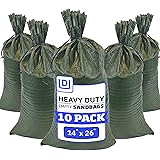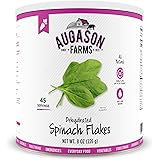Personal Financial Security
Budgeting and Saving
Budgeting is your first line of defense when preparing for any economic downturn. I remember when I first started budgeting; it changed the way I viewed my finances. Start by listing all your income sources and then track your expenses. You’ll be surprised at how much you can save by simply being aware of where your money goes.
Once you’ve got a solid budget, the next step is saving. I can’t stress this enough: always pay yourself first. Even if it’s just a small percentage of your income, consistently putting it aside can build a safety net over time. Those savings can be crucial when an economic collapse hits.
It’s also wise to diversify your savings. Don’t just keep your money in a single bank account. Consider other savings vehicles like bonds, precious metals, or even real estate. Diversity adds a layer of security and can minimize the impact if one area takes a hit.
Debt Management
Debt can be a huge burden, especially during tough economic times. When I first started addressing my debts, it felt like I had a mountain to climb. But breaking it down into small, manageable steps made all the difference. Prioritize high-interest debts first, as they accumulate the fastest.
Credit cards and personal loans often have high interest rates. If possible, consolidate your debt with a lower interest rate. This not only cuts down on the interest you’re paying but can also simplify your monthly payments.
Don’t forget to engage with your lenders. Many people overlook this step, but lenders can sometimes offer hardship programs or more favorable terms if you’re proactive. It’s better to negotiate terms before you fall behind.
Emergency Funds
An emergency fund is like your financial lifeboat. When I was younger and first introduced to the concept, it seemed daunting to set aside a large sum of money. But, starting small and consistently adding to it made a huge difference. Aim for at least three to six months’ worth of living expenses.
Keep your emergency fund in an easily accessible savings account, but separate from your primary savings to avoid the temptation of dipping into it for non-emergencies. Think of it as your last line of financial defense.
== > What if ... Get a FREE Subscription to PREPARE
Review and adjust your emergency fund regularly. Living expenses can change, and you want to ensure your fund keeps pace with those changes. Regularly reviewing it helps you stay prepared for unexpected expenses.
Long-term Food Storage
Choosing the Right Foods
When it comes to long-term food storage, variety is the spice of life. Personally, I stock up on non-perishable items such as beans, rice, canned veggies, and meats. They last long and provide a solid nutritional foundation. The key is to choose foods you and your family actually like to eat because if you don’t enjoy it, it’s a waste of space.
Rotate your food supply regularly. This ensures that you always have fresh items and minimizes waste. I use an inventory system to track expiration dates, which helps me stay organized. This way, nothing goes to waste, and I always have fresh supplies.
Don’t forget comfort foods. These can be a morale booster during tough times. I always keep a stash of coffee, chocolate, and other treats. They may not be essential for survival, but they sure make life a bit easier.
Storage Methods
Storage methods are crucial for long-term food preservation. I’ve learned that using airtight containers for dry goods is a game-changer. It keeps pests out and extends the shelf life. My pantry is full of these, and it makes staying organized a breeze.
Freezing is another excellent option for meats and certain vegetables. By vacuum-sealing items before freezing, you can avoid freezer burn and prolong their usability. I have a freezer dedicated to long-term storage, so I always have a variety of frozen options available.
Also, consider canning. It’s an old-school method but extremely effective. Whether you’re doing it yourself or buying pre-canned items, the sealed jars maintain the food’s quality for years. Plus, canning your own produce can be a fun and rewarding process.
Supply Inventory
Keeping an inventory is essential. When I started, a simple spreadsheet was enough to track what I had and what I needed. Over time, I moved to more sophisticated apps that send reminders when items are nearing their expiration dates. An organized inventory saves you time and money in the long run.
Regularly check and update your inventory. Life gets busy, and it’s easy to forget what’s in your storage. Just dedicating a few minutes each month can make a big difference. This routine check ensures that your supplies are always ready when you need them.
Involve the whole family. Make it a collective effort, especially when updating the inventory or organizing the pantry. This not only makes the task less overwhelming but also ensures everyone knows what’s available and where to find it.
Self-sufficiency Skills
Gardening
Gardening can be incredibly rewarding. I started with a small herb garden and gradually expanded to vegetables and fruits. The sense of accomplishment when harvesting your first crop is spectacular. Plus, it’s a sustainable way to ensure a fresh food supply.
Learning about soil, weather patterns, and plant care is all part of the journey. I’ve read countless books and watched tons of YouTube tutorials. Experimenting with different seeds and plants teaches you what grows best in your area.
Don’t be discouraged by failures. I’ve had many plants that didn’t make it. But each failure taught me valuable lessons. Over time, I became more skilled, and my garden flourished.
Canning and Preserving
Canning is a fantastic way to store the produce you grow. My grandma taught me this skill, and it’s been invaluable. Start with simple recipes and gradually move to more complex ones. The first time I canned a batch of tomatoes, it was a game-changer.
Make sure to use the right equipment. A good pressure canner is crucial for preserving low-acid foods like meats and vegetables. For high-acid foods like fruits and pickles, a boiling water bath works just fine.
Always follow safety guidelines. Improper canning can lead to foodborne illnesses. Trust me, you don’t want to take any shortcuts here. Stick to tried-and-true recipes and methods to ensure the safety of your preserved foods.
First Aid
Basic first aid skills are essential. I took a community first aid course, and it was an eye-opener. From treating minor cuts to performing CPR, these skills can be lifesaving. It’s always better to be prepared for any emergency.
Having a well-stocked first aid kit is equally important. It should include bandages, antiseptics, pain relievers, and other essentials. I update mine regularly to ensure it’s always ready to go.
Practice your first aid skills regularly. Just like any other skill, practice makes perfect. Whether it’s through refresher courses or online tutorials, keeping your skills sharp is crucial for effective preparedness.
Building a Community Network
Forming Support Groups
A strong community network can make a world of difference. I’ve found that having like-minded individuals you can rely on is invaluable. Join local preparedness groups or initiatives. Sharing knowledge and resources makes everyone stronger.
Attend community meetings or events. When I first started getting involved, it was an excellent way to meet people and build relationships. These connections can provide support, especially during challenging times.
Online forums and social media groups can also be beneficial. They offer a platform to exchange tips and advice with people who share similar interests. Plus, it keeps you updated on the latest preparedness strategies.
Bartering Systems
Bartering can be a lifesaver during an economic collapse. I’ve traded skills and goods with neighbors when times were tough. Knowing what you can offer and understanding the needs of others is critical. It’s a give-and-take system that benefits everyone involved.
Start small and local. Begin by exchanging basic items or services with your immediate community. As trust builds, you can expand the bartering network. Remember, the goal is to ensure everyone’s needs are met.
Communication is key in bartering. Be clear about what you’re offering and what you need in return. Mutual respect and honesty foster healthy bartering relationships. It’s a skill that can prove invaluable during economic hardships.
Community Gardens
Community gardens are fantastic for building a network while ensuring food security. I joined one a few years back, and it’s been a rewarding experience. Sharing gardening tasks and tips with neighbors creates a strong sense of camaraderie.
These gardens can yield a substantial amount of fresh produce. It’s a great way to supplement your long-term food storage and ensures you have access to fresh fruits and vegetables. Plus, it’s a communal effort that brings people together.
Consider starting a community garden if one doesn’t exist in your area. It might seem daunting, but starting small and rallying community support can make it happen. The benefits far outweigh the effort involved.
FAQ
- What are the most important steps in personal financial security?
- Budgeting and saving, debt management, and maintaining an emergency fund are crucial steps to secure your personal finances in preparation for economic uncertainty.
- How do I select the best foods for long-term storage?
- Choose a variety of non-perishable items that your family enjoys. Rotate your food supply and include comfort foods to maintain morale during tough times.
- Why are self-sufficiency skills important?
- Self-sufficiency skills like gardening, canning, and first aid ensure you can provide for yourself and your family without relying on external resources, which may be scarce during an economic collapse.
- How can building a community network assist in preparedness?
- Forming support groups, engaging in bartering systems, and participating in community gardens strengthen communal bonds and resource-sharing, providing mutual aid during economic hardships.






